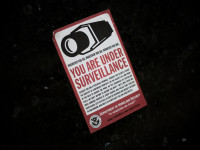Another week, another revelation originating from the seemingly unlimited trove of Edward Snowden documents. Last week, the CBC reported that Canada was among several countries whose surveillance agencies actively exploited security vulnerabilities in a popular mobile web browser used by hundreds of millions of people. Rather than alerting the company and the public that the software was leaking personal information, they viewed the security gaps as a surveillance opportunity.
My weekly technology law column (Toronto Star version, homepage version) notes that in the days before Snowden, these reports would have sparked a huge uproar. More than half a billion people around the world use UC Browser, the mobile browser in question, suggesting that this represents a massive security leak. At stake was information related to users’ identity, communication activities, and location data – all accessible to telecom companies, network providers, and surveillance agencies.












